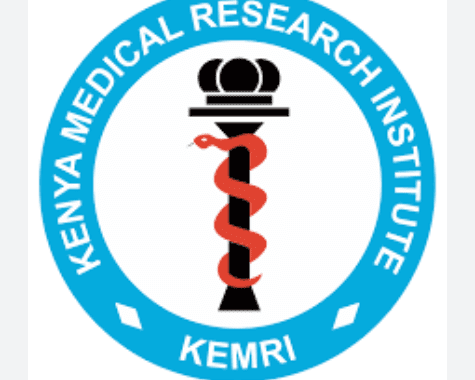Endometriosis: 7 Key Symptoms and Helpful Treatment Tips

Endometriosis is a common gynecological condition that affects up to 10% of women. If you happen to have this disorder just know you are not alone. And it can be treated.
Endometriosis is a condition in which tissues that are supposed to normally grow in the uterus, grow outside the uterus. These tissues can grow on the Fallopian tube, ovaries, pelvic, or intestines. They can also be found on other places in a body such as the vagina, vulva, bowel, cervix, bladder, and rectum.
Endometriosis growths may swell and bleed in the same way someone experiences a menstrual period every month. This may then cause swellings and pain since the tissues grow and eventually bleed in areas where blood cannot easily get out of the body.
With time as the growths continue, they expand and cause complications.
These problems may include:
- Bladder and intestine complications
- Inflammation (a lot of swelling)
- Trapped blood in the ovaries can easily form cysts due to the blocking of the Fallopian tube when the growths cover or grow in the ovaries
- Growths form scar tissues, which can cause pelvic pain, hence make it difficult to get pregnant. This explains why many women suffering from endometriosis do not get pregnant easily.
What Causes Endometriosis
- Genetic factors: If members of a family have or are battling endometriosis, it may then be inherited by other family members.
- Retrograde menstrual flow: Refers to some of the tissues shed during menstrual flow through the Fallopian tube to other parts of the body such as the pelvic.
- Surgical scar implantation, in that, after surgery such as C-section, endometrial cells may attach to the surgical incision causing endometriosis.
- In some cases, blood vessels or tissue fluids may move the endometrial cells to other parts of the body.
- If you have a weak immune system, the body may not locate the endometrial tissues growing outside the uterus and kill them. Eventually, the growth may lead to endometriosis.
What Are Some Of The Symptoms Of Endometriosis
- Infertility: Most people first realize they have endometriosis when seeking medication for infertility issues.
- One may experience pain during sexual intercourse.
- Feeling pain when urinating and with bowel movements.
- Painful period: Pelvic pain and cramping that may begin and extend the whole time when having your menstrual periods.
- Lower back and abdominal pains experienced before and during menstruation.
- One may experience fatigue, diarrhea, and nausea, and bloating when having your menstrual periods.
- Heavy menstrual bleeding or bleeding between periods.
Complications Of Endometriosis
- Most common complication of this disorder is impaired infertility.
Most women with endometriosis have difficulty getting pregnant. Endometriosis may obstruct the tube, causing the sperm and the egg not to fuse and fertilize.
However, those with moderate endometriosis can get pregnant and carry the pregnancy to term. Therefore, doctors advise those with mild or moderate endometriosis not to delay having kids since the condition may worsen later in the years or with time.
- Another complication with endometriosis may be ovarian cancer. But a lifetime risk of ovarian cancer is low at the beginning.
Although it is a rare type of cancer (endometriosis-associated adenocarcinoma) it may develop with time to those who have or who have had endometriosis.
How To Treat Endometriosis
- If left untreated, endometriosis can make your life a bit uncomfortable. It is okay if you want relief from pain and other symptoms of this disorder. Endometriosis has no cure but its symptoms can be managed.
- There are medical and surgical options available to help reduce symptoms and manage potential complications that may be experienced. Doctors often advise a person to try conservative treatments, then later recommend surgery if the condition does not improve.
- You can also try over-the-counter pain medications such as ibuprofen; however, they are not effective in all cases. Pain medications are for just relieving pain.
- Also, supplemental hormonal therapy may sometimes relieve the pain and stop the progression of endometriosis. Hormonal therapy helps regulate hormonal changes that boost the tissue growths that lead to endometriosis or occur when you have it.
- Also one can try conservative surgery, which is often done on women who want to get pregnant or those experiencing severe pain with whom the hormonal treatment is not working. The aim of conservative surgery is to destroy the endometrial growths without damaging the reproductive organs.

 Uninspected Meat Sold In Embu Causes Alarm
Uninspected Meat Sold In Embu Causes Alarm  No Condoms For Teenagers, Let Them Abstain; Susan Nakhumicha, Health CS Says
No Condoms For Teenagers, Let Them Abstain; Susan Nakhumicha, Health CS Says  KEMRI; A Dangerous Malaria Vector Discovered In Kenya
KEMRI; A Dangerous Malaria Vector Discovered In Kenya  Natalie Githinji Opens Up On Her Near Death Encounter In Her Endometriosis Journey
Natalie Githinji Opens Up On Her Near Death Encounter In Her Endometriosis Journey  There Is No Swine Flu Outbreak In Nakuru; Ministry Of Health Confirms
There Is No Swine Flu Outbreak In Nakuru; Ministry Of Health Confirms  Swine Flu Outbreak In Nakuru County Leaves 1 Dead And 8 Hospitalized
Swine Flu Outbreak In Nakuru County Leaves 1 Dead And 8 Hospitalized